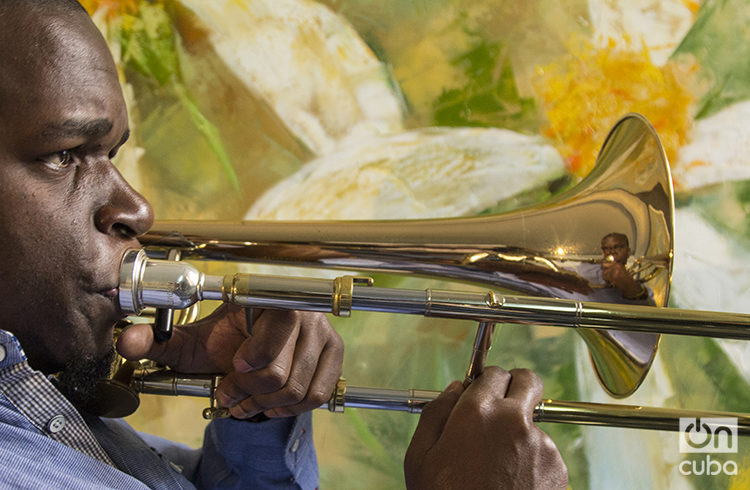Throughout the two years since Havana and Washington announced the reestablishment of relations, art and culture has been one of the spheres with the greatest exchange. Cuban artists have talked to OnCuba about the benefits they have perceived from this.
Alexander Abreu is of the opinion that bands like the one he leads could form part of the big recording companies’ regular catalog. “A great many Cuban groups can benefit from the good news that is happening. There are already several bands that are in the international circuit and are having a good moment,” he said.
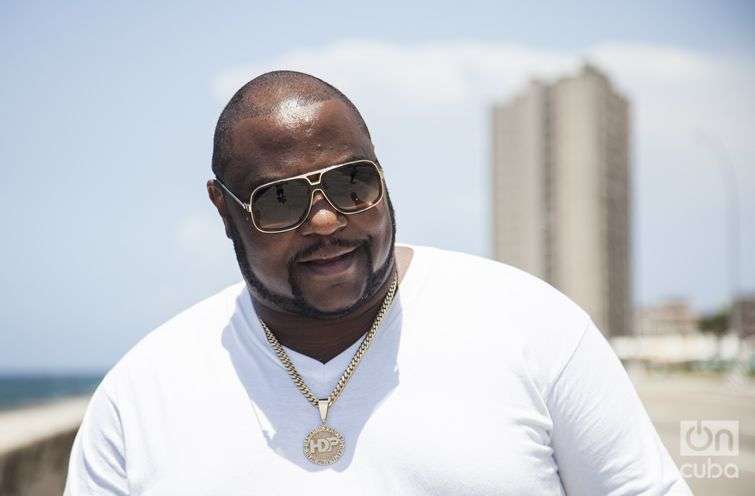
The trumpet player, who in the last two decades has recorded in Cuba the majority of the son albums, is prudent regarding the possible contracts that could be signed with the major recording companies. “We have to see how they open, what their nature is and in this way we will be able to work in a way that is new for us. I believe that in upcoming years all this will bring a satisfactory result and that the progress and prosperity for the defenders of this genre will be seen,” the author of Me dicen Cuba explained.
Sexagenarian and popular for mixing the changüí with the son, in 2014 La Revé band signed with Sony Music Mexico the La salsa tiene mi son CD, a compilation of hits from the stage of Elio Revé Matos, from the 1990s.
While the talks to close the contract date way before December 17 of that year, it marked an important moment for Cuban popular music.
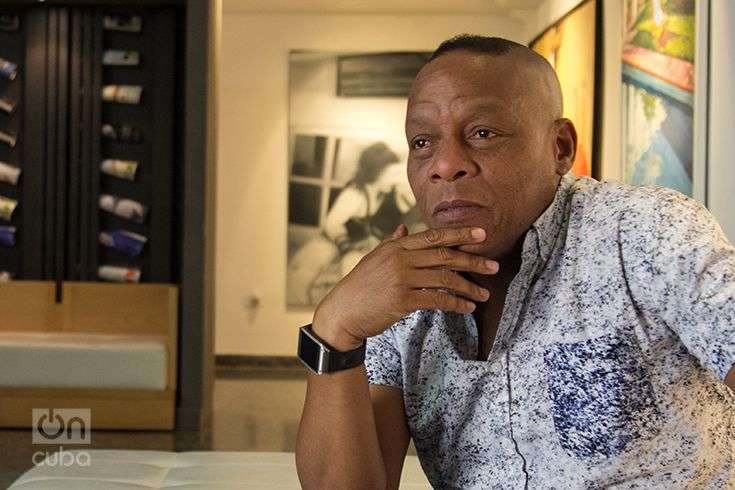
Regarding this, Elito Revé said to OnCuba that “not only does the band win, but Cuba too, since it’s an achievement for Cuban music.” The artist did not deny in his statements the possibility of continuing with Sony Music Mexico: “They are interested in a new CD we are making, which will feature Yomil and El Dani, who sing the piece Que el sol salga para todo el mundo, by Osmani Espinosa. But La salsa tiene mi son has only been in the shops for a month. What I see that’s good in all this is that a Cuban group is in an international recording company and others are already on the way. The road is open for all,” he said.
For the composer of Agua pa’ Yemayá, the new scenario marked by Havana and Washington consolidates a process of cultural exchanges that was already taking place between both countries, in which, he pointed out, “the Cubans have won, because over there they also enjoy the music that is created on the island. We are all Cubans, those who were born over there, those from here and I always say that no matter where we are, we will be Cuban. I think lovelier things are going to come, which is why Cuban music will win.”
Israel Rojas is one of those who affirm that a sign has been given to the international music industry to include the Cuban patrimony in their extensive repertoire.
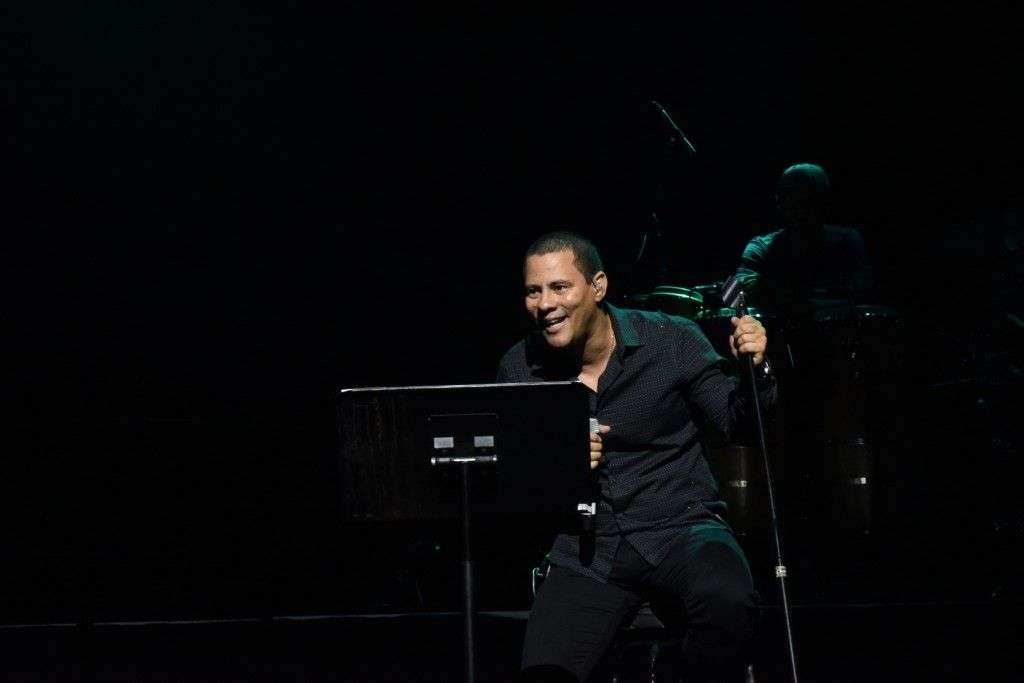
The leader of Buena Fe was clear when mentioning how favorable the conditions are for music to continue being an element of détente and rapprochement. For the Guantánamo singer and composer, “art is part of the country’s destiny. No one can think that a single sector can fully develop disconnected from the rest of society’s spheres. The music industry is necessary. You’ve already said it, today music, in addition to being art, is an industry and we have much to learn, to update and also a great deal to unlearn and create again.”
Rojas warned that, like all artistic processes, the new scenario for Cuban music will pass through a decantation: “Not all the good Cuban music will have the opportunity to expand, just like a great deal of the art done on this planet doesn’t have an opportunity when it doesn’t make easy and fast profits. The new situation is presenting opportunities and challenges that have to be assumed without fear. I’m optimistic. It was good to see the Entrevoces chorus on the stage with The Rolling Stones. It’s important to not lose the compass, the map or the conviction that salvation goes through what Martí wrote: ‘with all and for the good of all.’”
In terms of genres already universally legitimized like rock and roll, for example. David Blanco feels “there’s great potential” in Cuba.
The author of La evolución wants the island to be a point in the tours of international artists. Blanco doesn’t believe “in borders, in walls. On the contrary, I have faith in the bridges, in the doors,” affirmed David, who is betting on an inclusive cultural exchange that allows “musicians from any part of the world” to perform in Cuba, “even the Cubans who no longer reside on the island shouldn’t have problems to play here. Neither should many of our artists have them when performing in any part of the world. And furthermore, if it is discovered that at some time we can go to Mars and there’s a public there, humanity must focus that it continue being like that. Because music is noble, free, it has no owner. And if it does, it is the public.”
NEW ARRIVALS
Just a few week ago the photo that confirmed a secret that was going around started appearing on Facebook and Twitter: Cuban Leoni Torres signed with Magnus Media, Marc Anthony’s company that recently recorded Vizualízate, the record with which Gente de Zona won the 2016 Latin Grammy.

For percussionist Oliver Valdés what has happened with Gente de Zona, Descemer Bueno and a still small group of musicians from the island that today are popular abroad has been good. All this has an explanation for the drummer: “Cuba is in fashion. As well as music.”
Valdés perceives that the island is getting to be known abroad and that it’s possible to reach the music market. “Entering that industry is fantastic, especially for jazz and percussion. For the latter specialty there is a very important circuit of festivals in the United States and drummers residing in Cuba haven’t been able to be present.”
Laritza Bacallao agrees that it would be attractive to perform in the United States, a space that must be conquered, although because of the blockade/embargo laws they still couldn’t be paid, despite the package of measures approved by Barack Obama last March.

The singer of Que suenen los tambores has toured several U.S. cities and this had a very positive result for her career. However, she recognized that the U.S. public hasn’t been reached yet “in the way we think, but rather the Latinos who live in that nation: Peruvians, Chileans, Cubans…. We have to go a bit further, although the same doesn’t go for our traditional music, which does reach everyone.”
Another interesting aspect is the record market. Although it’s a very difficult field for the immediate insertion of Cubans, Mayco D’Alma underlined in an interview with OnCuba that “a great many doors are being opened and it’s a good opportunity for those over there to come here and those from here to go there. That way we can establish more relations.”
A part of the booming movement of young Cuban jazz musicians at present, Eduardo Sandoval was categorical when he affirmed that “we all have a chance” in the new scenario opened up two years ago. “This is something that should have happened a long time ago. There are three countries that transcend in the world of music: Brazil, Cuba and the United States. I think that we should draw from all those musical essences. And I also think there’s a super good movement on the island which gives us the opportunity to develop ourselves.”
VIEWS FROM ABROAD
Dayramir González and David Virelles are two Cuban pianists who reside in New York. In September, González presented Havana Concourse in the Big Apple, while Virelles is getting ready to make public his most recent album.
They both coincided that the reestablishment of relations between Cuba and the United States has marked an opportunity to increasingly strengthen the cultural exchange. These days Dayramir is in Havana taking part in Jazz Plaza. A master class and a presentation with the Symphony Orchestra in the National Theater’s Avellaneda Hall make up his Havana program and a unique moment to have contact with his public.
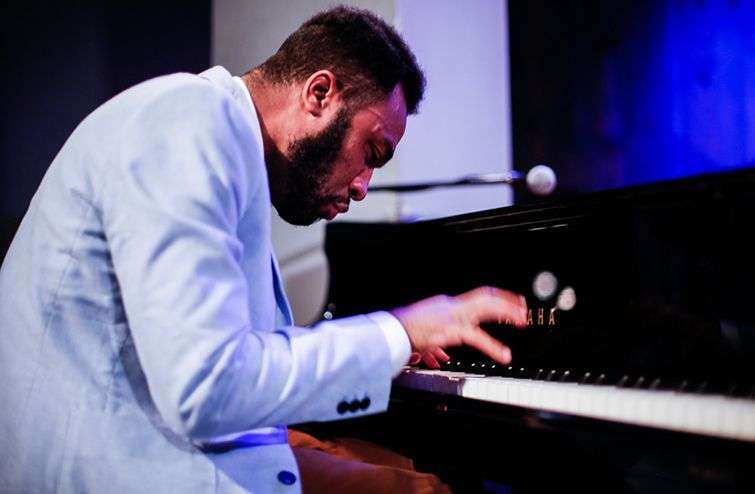
Last September, González commented to us about all the interest that Cuba, its music and its culture awakens in the United States. “After the reestablishment of relations and President Obama’s visit to our Havana, everyone wants to go to the island and live it firsthand. For many years the U.S. people have been especially banned from freely visiting our country,” he said.
Meanwhile, David Virelles was specific when he pointed out that there’s a marked U.S. interest in our music. “Now we’ll have to see how that selection process develops in Cuba. For example, in Santiago de Cuba and in the country’s other provinces there are many artists that in my opinion have a very high caliber, deserving international recognition. However, they have had little access to this type of opportunities.”
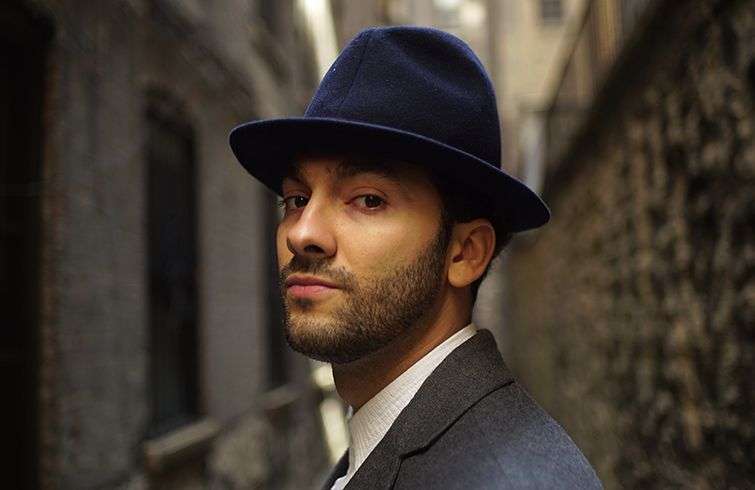
“Another benefiting element is the fact that – contrary to what the majority could think in the country – on an international level there is a market for this type of musical genres, although this has also suffered in recent years due to the meteoric development of technology and other social processes,” Virelles opined.
Beyond the U.S. market there are also rapprochements. Gabriel Turielle, head of the Contrapedal Company and president of the Latin American Association of Music Managers (MMF LATAM), celebrated this period of opening for Cuban music in the first edition of the event AM-PM America for its Music.
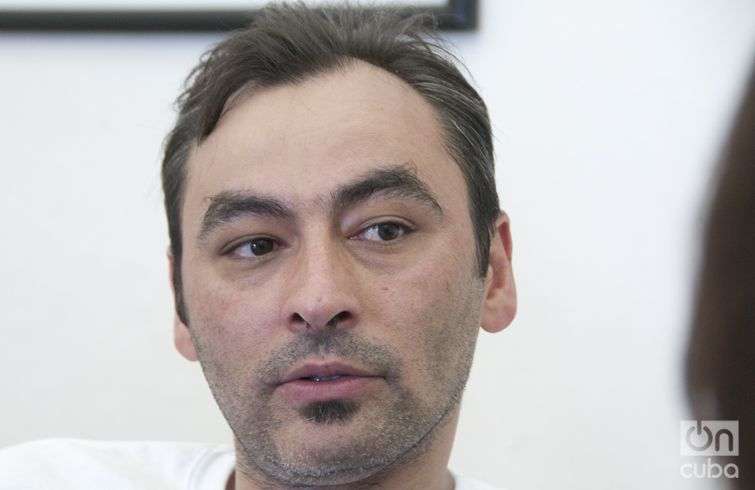
Turielle revealed that MMF LATAM is very interested in circulating Cuba’s music in the continent, since they always collaborate in strengthening links between Latin American countries.
“Apart from the opening with the United States, which to me seems like a super good idea, well, we are much more interested in strengthening relations between Latin American countries…. To go out into the world with authority, we first have to make ourselves strong and present our conditions in a convincing way, always in favor of our artists.”

